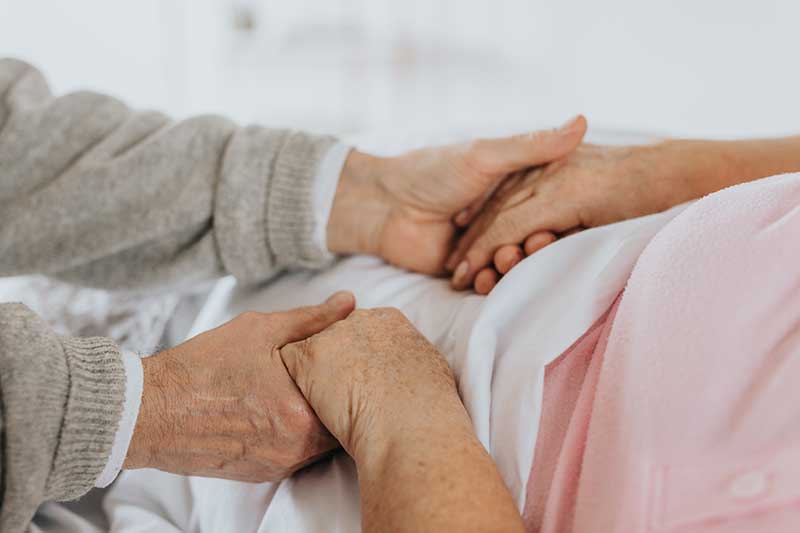Whether due to illness, injury, or disability, caring for an immobilized patient can be a difficult and emotionally taxing task. It takes fortitude, compassion, and knowledge to provide the highest quality of care to a bedridden patient. In this blog, we will discuss immobilized patient care essentials to ensure their comfort, safety, and health.
Observe Appropriate Hygiene
Maintaining proper sanitation is essential for bedridden patients in order to prevent infections and enhance their overall comfort. To prevent bedsores, ensure that the patient’s epidermis is kept clean and dry. Provide daily baths or sponge bathing and ensure that they brush their teeth. Pay special attention to areas such as the perineum, underarms, and skinfolds, as they are more susceptible to skin problems.
Frequent Position Alterations
If they remain in the same position for too long, bedridden patients may develop pressure ulcers, also known as bedsores. To prevent this, the patient should be repositioned every few hours. Utilize pillows, cushions, or pressure-relieving devices to redistribute pressure and reduce the risk of skin disintegration.
Nutritional and Hydration Needs
The inability of bedridden patients to consume and drink can result in malnutrition and dehydration. Ensure that they consume a diet that meets their nutritional requirements. Whenever necessary, a dietitian should be consulted. Keep track of their fluid intake and provide water or other liquids in tiny amounts throughout the day. If swallowing is problematic, straws or adaptive utensils should be considered.
Medication Administration
Maintain a comprehensive medication schedule if the patient is ABC’d. Ensure that they receive their medications on time, and maintain a record of each dose. It is imperative to adhere to the prescribed dosage and to consult the healthcare provider with any questions or adverse effects.
Protect Skin Health
Regularly inspect the patient’s skin for signs of redness, sores, and blemishes in order to avoid skin problems and infections. Maintain skin hydration to prevent dryness and irritation. Protect vulnerable areas with barrier lotions or ointments, as directed by a healthcare professional.
Emotional Assistance
Being confined to a bed can be emotionally trying, causing feelings of isolation and melancholy. By spending time with the patient, engaging in discourse, and providing reassurance, you can provide emotional support. Encourage them to engage in enjoyable activities, such as reading, viewing television, or listening to music.
Enhance Mobility
Even if the patient is incapacitated, it is important to maintain their joint flexibility and muscle strength. Encourage range-of-motion exercises to prevent muscle wasting. Physical therapists and occupational therapists can offer advice on the most effective exercises and techniques.
Guarantee Safety
When transferring bedridden patients to a wheelchair, commode, or other mobility aides, they are susceptible to falls and accidents. Invest in the necessary mobility aids, including bed rails and transfer platforms, to guarantee safe movement. Always use the correct transfer techniques and lifting aids when necessary.
Communication with Healthcare Providers on a Routine Basis
Maintain close communication with the patient’s medical providers. Share immediately any alterations in the patient’s condition or concerns. Regular communication will aid in adjusting the care plan as necessary and guaranteeing the highest quality of care.
The conclusion
Providing care for an immobile patient is a demanding but essential duty. By adhering to these essential guidelines for caring for bedridden patients, you can provide the necessary assistance to preserve their comfort, health, and emotional wellbeing. Remember that each patient’s requirements are unique, so adapt these recommendations to their specific circumstances and always seek the advice of healthcare professionals when necessary. Your commitment and compassion can make a substantial difference in the life of an immobile patient.
